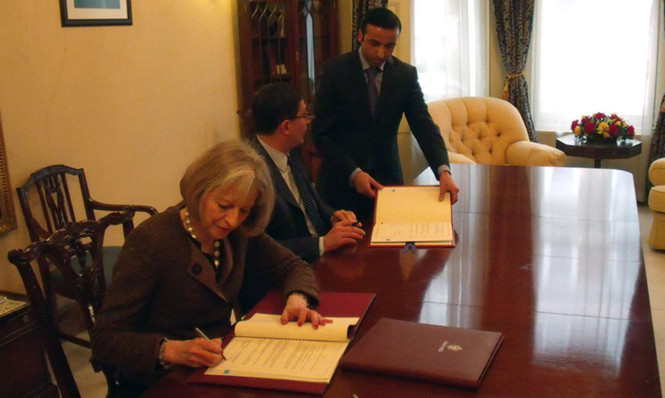The Home Secretary has pinned her hopes for ousting Abu Qatada from Britain on a fresh deal with the Jordanians, but warned it could still take many months to deport the hate preacher.
Theresa May said a new treaty between the UK and Jordan guarantees that torture evidence will not be used against the terror suspect if he is returned to the Middle Eastern country.
But sounding a note of caution, Mrs May said the agreement does not mean Qatada will be “on a plane to Jordan within days” as he will still be able to appeal against any fresh decisions to deport him.
The Labour Party said the move took the legal process back to “square one”, while a leading human rights barrister accused the Home Secretary of “wasting taxpayers’ money”.
The so-called “mutual legal assistance agreement” includes fair trial guarantees, the Home Secretary said, which would apply to anyone being deported from either the UK or Jordan.
“I believe these guarantees will provide the courts with the assurance that Qatada will not face evidence that might have been obtained by torture in a retrial in Jordan,” she told the House of Commons.
Before the deal can come into force, and become a formal treaty, it must be ratified by both countries.
Mrs May went on: “But as I have warned the House before, even when the treaty is fully ratified, it will not mean that Qatada will be on a plane to Jordan within days.
“We will be able to issue a new deportation decision, but Qatada will still have legal appeals available to him, and it will therefore be up to the courts to make the final decision.
“That legal process may well still take many months, but in the meantime I believe Qatada should remain behind bars.”
Earlier, it emerged Downing Street is considering a temporary withdrawal from the European Convention of Human Rights as another possible play to expel Qatada.
Asked if this was a possibility, Mrs May said: “We should have all options including leaving the convention altogether on the table. The Prime Minister is looking at all the options.”
John Cooper QC, human rights and criminal barrister at 25 Bedford Row chambers, said there was nothing in the new treaty “of bite”.
He said: “The only possible way that this woman can succeed is by getting the immigration courts right back to point one, to be persuaded that Jordan has set in place procedures that will ensure evidence obtained by torture cannot be used.”
Former home secretary Lord Reid said: “The Government has already made a rod for its own back by over-hyping the prospects of Abu Qatada’s early departure and deportation.
“They are now in danger of seriously compounding that problem by hinting at leaving the ECHR. While there are provisions for temporary withdrawal from the convention they would not be applicable to the Abu Qatada case.
“Indeed, in these particular circumstances they are expressly forbidden.”
